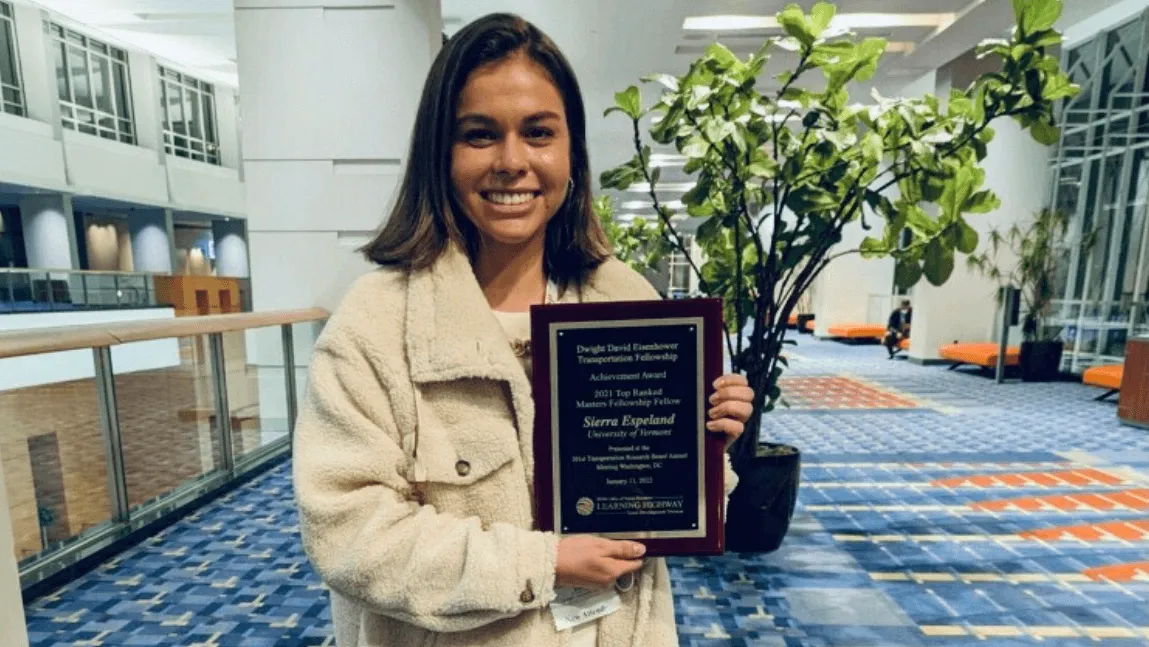UVM’s Transportation Research Center is proud to announce that Sierra Espeland won the Dwight David Eisenhower Transportation Fellowship (DDETFP) Achievement Award: 2021 Top Ranked Master’s Fellowship Fellow. The award was presented at this year’s 101st Annual Meeting of the Transportation Research Board of the National Academies of Science, Engineering and Medicine, at the DDETFP’s reception celebrating all of the Fellows. Sierra is a first-year Civil and Environmental Engineering Master’s student working with Dr. Dana Rowangould.
The prestigious DDETFP is supported by the Federal Highway Administration (FHWA.) The program’s goal is to advance the country’s transportation workforce by attracting outstanding students to the field of transportation. DDETFP Fellowships support students’ in pursuing advanced degrees and spurring innovative change in our country’s transportation system.
Sierra’s research, “Travel Burdens in Rural US Households” evaluates how people in rural communities experience multiple and overlapping travel burdens, such as longer travel times, high travel costs, and unmet travel needs, such as missed trips. Her work is the first phase in the larger research project “Evaluation of Travel Constraints and Travel Burdens in the U.S. and in Rural Zero-Car Households”.
By shifting the focus to rural communities, Sierra’s work addresses research gaps by expanding what we know about transportation disadvantage in urban and suburban areas. There are many overlapping factors at play in rural communities that contribute to the risk a person may experience travel burdens, such as a lack of a vehicle, lack of transit access, low income, and the need to travel longer distances to reach destinations. However, not every person or community faces the same types of travel burdens or to the same degree.
The broader policy implications of Sierra’s research are widespread. By examining who experiences travel burdens, to what extent they are burdened, and the factors that contribute to travel burdens in rural versus urban communities, Sierra’s work will inform transportation decision makers who design transportation policies and programs so they are able to improve the wellbeing of rural populations in equitable ways.
Sierra presented her research during the DDETFP lectern presentation at this year’s TRB Meeting. The opportunity allowed her to meaningfully engage with her peers, as well as transportation professionals, receive immediate feedback, and make connections which she feels she wouldn’t otherwise have made over a video call or in a webinar.
